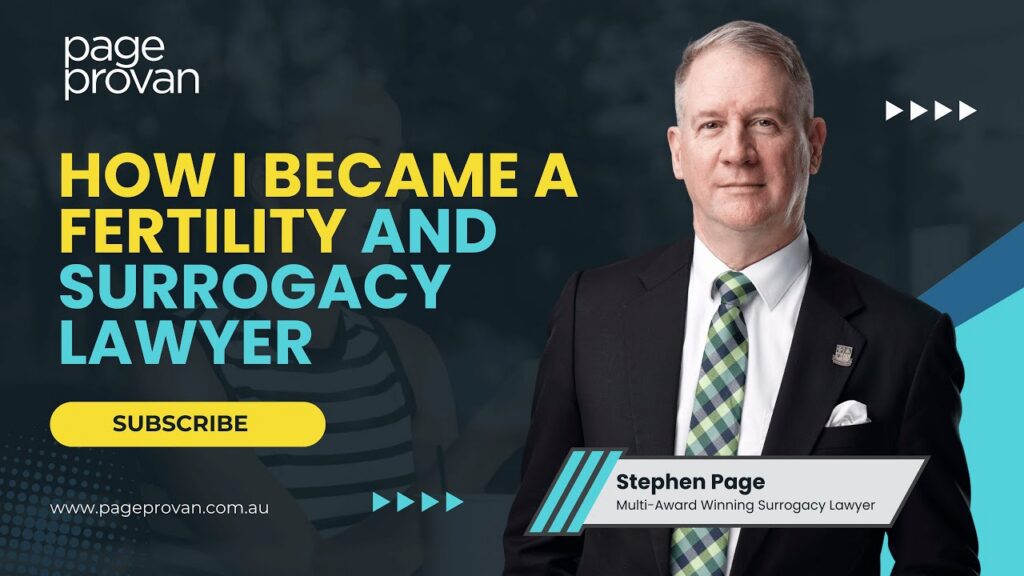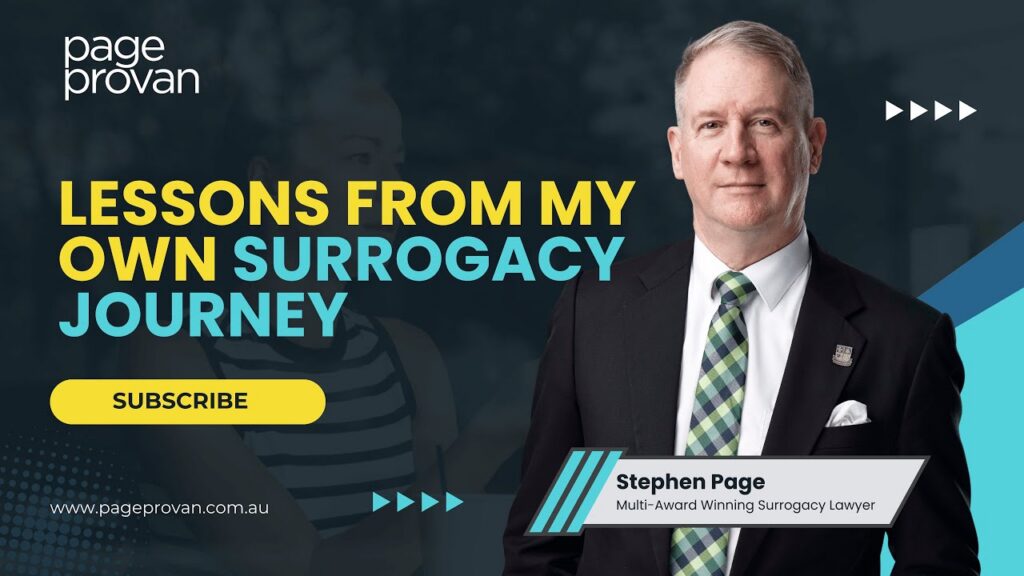Things You Must Know if You are Separated but Living in the Same House
In this video, Accredited Family Law Specialist and Page Provan Managing Director Bruce Provan talks about the things you need to know if you are separated but living in the same house.
Transcript
Good morning. My name is Bruce Provan. I’m the Managing Director of Page Provan, Family and Fertility Lawyers. We’re a law firm that practices exclusively in family and fertility law in central Brisbane.
Today I’m going to talk about things you need to know if you are separated but living in the same house. Many couples separate and choose to live in the same home, and there’s a few good reasons for that. One of them is financial. Obviously, if one person leaves the home and goes to live elsewhere, it’s going to put a greater strain on the couple’s finances because suddenly you’ve got two homes rather than one.
The other reason is that if a couple lives in the same home, they both have frequent and regular contact with their children, and sometimes these arrangements of living in the same home can go on for years and be satisfactory. But there’s a few things that you really need to be careful about if you choose to separate and live in the one home. The most important issue is to protect your safety.
If there’s been a history of family violence, for example, harassment, intimidation, threats, or coercive control, or there’s a possibility of it in future, then it may not be desirable to continue to live in the same home for any significant length of time, and if that’s the case, you need to think about your options in terms of getting out of the home with or without the children, or trying to work out a way of getting your former partner out of the home.
So you need to consider if it’s going to be easier for you to leave the home, and if so, where else could you go? Have you got family or friends that you could go and stay with at short notice? If there’s been family violence, is there a domestic violence shelter that you could go and stay, again, with or without the children? The other option is to try to get your former partner to leave the home, and if they’re not willing to do that through negotiation.
In some limited circumstances, you may be able to get a court order to have them removed from the home. What some people do is to change the locks of the home to exclude the other person. But that’s not something that I generally recommend because there’s nothing to stop the other person from going and changing the locks to exclude you from the home, and it generally just inflames things.
So if you are going to live in the same home, it’s important that you have satisfactory arrangements in the best interests of the children. Now, often that can be a continuation of the arrangements that continued pre-separation, but it’s important to have an agreement and arrangements between the two of you, for example, about transport of the children, who’s going to get the children to and from school?
Who’s going to get the children to and from the children’s activities and appointments? Who’s going to be responsible for making those appointments, for example, and if the two of you can’t reach an agreement about all of those issues, it would be desirable to engage a mediator or a family dispute resolution practitioner.
A mediator who specialises in parenting disputes, to be able to assist you to reach an agreement, and if you can reach an agreement, often it’s desirable for that agreement to be put in writing, signed by the two of you, and that then becomes what’s called a parenting plan.
The other matter to consider consider when you’re living in the same home is, is there going to be a sharing of finances and how is that going to work? For some couples, they can continue as they did prior to separation, having a joint account, both pay is being put into that account and for their expenses to be paid from that account.
But other times it’s more appropriate to have separate accounts and for each person’s income to go into their own account. But if that happens, there needs to be an agreement about how expenses are going to be paid from each of those accounts, and again, if you’re not able to reach an agreement about all of that, it would be desirable to seek assistance from a lawyer or even a mediator in some circumstances to assist with that process.
Now, if the situation is that you do have separate accounts and you’re not getting financial assistance from the other parent, you may be able to apply for child support, and what child support is, is an agreement or an assessment where one parent is required to pay an amount of money for the support of the children to the other, and that could either be through negotiation or if there’s no agreement, there can be an application to the child support agency, the Division of the Department of Human Resources, and they can issue an assessment of how much money is required to be paid.
The other factor to consider is whether you may have an entitlement to spousal maintenance. Now, what spousal maintenance is, the situation where a couple separates, one of them is in a good financial circumstances and has a good income, the other doesn’t have a good income and requires money to be able to support themselves so that they can have a reasonable standard of living.
So it’s a good idea to seek advice from an expert lawyer, a family law specialist, to be able to advise you about that. Now, sooner or later, once couples have been living in that same home for a while, one of them will want to move on with their life. The couple can’t stay living in that same home indefinitely, and that means that the home will either need to be sold or that one person gets to keep the home and pay the other person out.
So at that stage, it’s a good idea to seek advice from a specialist family lawyer about your entitlement and the process to go through to negotiate a property settlement, preferably without going to court.
My name is Bruce Provan, Managing Director of Page Provan, Family and Fertility Lawyers.












